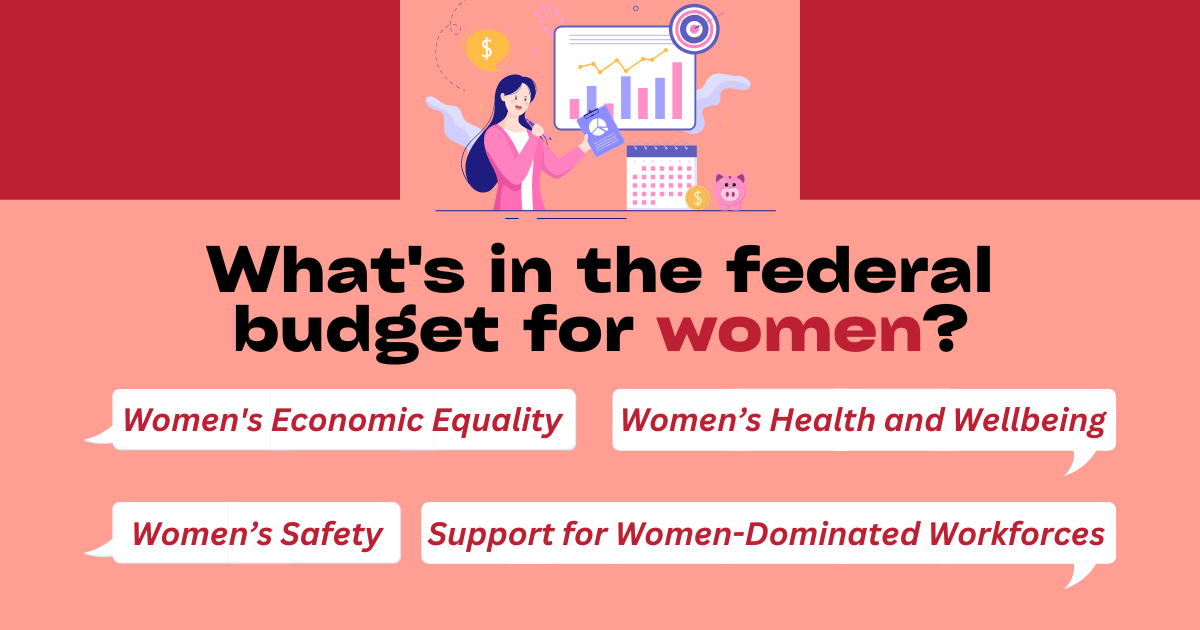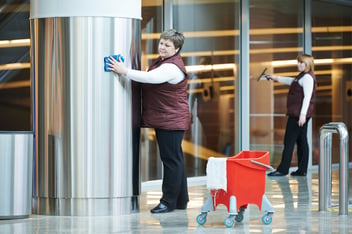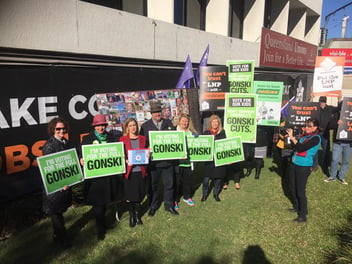What’s in the federal budget for women?
The latest federal budget, handed down earlier this month, continues a focus on women's safety, wellbeing and economic freedom.
The Women’s Budget Statement, released in conjunction with the federal budget, affirms this priority: “Women’s equality is at the heart of what we do as a Government. It is essential for strengthening our economy, our society and our nation.”
Queensland Unions Acting General Secretary Jacqueline King welcomed the budget measures.
“It is positive to see a federal government that respects and understands the challenges facing women, particularly in terms of workplace and economic inequity,” Ms King said.
“The application of a gender lens to budgetary decisions was sorely lacking in the previous government and led to women's working rights going backwards.
“We cannot reach our full potential as a nation until women are empowered to participate freely and fully in the workforce and we close gender gaps.
“Ending gender inequity will require considered and ongoing policy interventions – we welcome the government’s measures in this budget and hope to see further commitments in the future.”

Support for Women-Dominated Workforces
- $72.4 million for recruitment and retention in the early childhood education and care workforce (92% of this workforce are women);
- Affirms a 15% increase to the minimum wages for aged care workers, over 85% of which are women;
- $91.3 million for additional psychology placements to expand the mental health care workforce (80% of this workforce are women);
- Approximately $4 billion for increased indexed funding to organisations (including those delivering women’s safety initiatives);
- $8.6 million committed to the Australian Skills Guarantee (including targets for women in apprenticeships, traineeships and cadetships); and
- $67.5 million for homelessness services (a women-dominated workforce), including resources to assist women and children experiencing domestic and family violence.
Economic Equality
- $2.7 billion to raise the maximum payment rate of Commonwealth Rent Assistance by 15% (single women are the largest proportion of recipients of this payment);
- $1.9 billion to extend the Parenting Payment (Single) to single parents with a youngest dependent child aged under 14 years of age (the majority of recipients are women);
- $4.9 billion to increase support for people receiving working age payments such as JobSeeker; and
- Abolishing the ParentsNext Program from 1 July 2024 and removing the compulsory aspects as soon as possible (this intervention will address concerns about the punitive nature of existing compliance arrangements and the impact of payment suspensions and penalties have on parents and their young children).
Women’s Safety
Expanding on the $1.7 billion committed in the 9 May 2023 budget to end violence against women and children:
- $14.7 million to prevent sexual violence and improve justice responses to victim-survivors;
- $159 million to extend the National Partnership on Family, Domestic and sexual violence;
- $262.6 million to support the Aboriginal and Torres Strait Islander Action Plan to address violence against First Nations women and children;
- $46.5 million to expand family law property pilot programs and improve the family law system for separating families;
- $8.5 million in early intervention support for men who want to stop using violence.
- $57.3 million to support implementation of the Set the Standard: Report on the Independent Review into Commonwealth Parliamentary Workplaces; and
- $134.1 million to support the Office of the eSafety Commissioner to continue their important work support women and children who experience online harm.
Women’s Health and Wellbeing
- $26.4 million to support health and medical research focusing on women’s health;
- $11.3 million in support for breastfeeding and delivery of donor milk;
- $16.8 million to introduce a new subsidised gene expression profiling test to identify risk of recurrent breast cancer;
- $3.5 million for the Glen for Women, a program that provides culturally appropriate alcohol and other drug treatment services to First Nations women;
- $6.2 million to support development of positive body image among children and reduce body dissatisfaction and appearance pressures;
- $2.8 million for eating disorder support services; and
- $2.1 million to increase women’s representations in coaching, officiating and sports administration.
The Women’s Budget statement can be viewed in full here.



